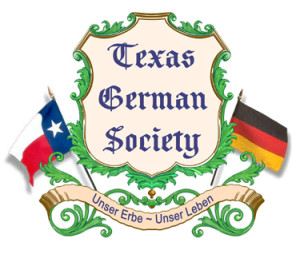 Interesting examples of code-switching (German mixed with English, like the combination of German was and English whatever) in a NPR story today about Texas German, a variety of the language still spoken by several thousand Texans living around the town of New Braunfels, between Austin and San Antonio. It’s one of only a few areas in the U.S. where there are still German-speaking communities. Best known are the Amish communities in Ohio and Pennsylvania. As mentioned in the story, one of the unusual aspects of Texas German is the fact that it is based not just on one or several dialects but on a relatively large number. Also of interest are the words from the “new world” that were invented and imported into Texas German. Skunks are not known in Germany, so the Texas German came up with Stinkkatze (smelly cat, in standard German Stinktier).
Interesting examples of code-switching (German mixed with English, like the combination of German was and English whatever) in a NPR story today about Texas German, a variety of the language still spoken by several thousand Texans living around the town of New Braunfels, between Austin and San Antonio. It’s one of only a few areas in the U.S. where there are still German-speaking communities. Best known are the Amish communities in Ohio and Pennsylvania. As mentioned in the story, one of the unusual aspects of Texas German is the fact that it is based not just on one or several dialects but on a relatively large number. Also of interest are the words from the “new world” that were invented and imported into Texas German. Skunks are not known in Germany, so the Texas German came up with Stinkkatze (smelly cat, in standard German Stinktier).
The story calls to mind a recent NY Times article also about German in the Americas, in this case about a German colony in Paraguay, Nueva Germania, founded in 1887 by German anti-Semites, including the sister of German philosopher Friedrich Nietzsche. This is the same sister, Elisabeth, responsible for distorting her brother’s ideas to make them much more anti-Semitic. According to the article, the town of Nueva Germania today is a model of multilingualism, far removed from Elisabeth’s vision of an Aryan stronghold:
While there are still a few blond-haired children running around, after generations of intermarriage, many of the town’s 4,300 residents have German surnames but are indiscernible from other Paraguayans. Nueva Germania’s dominant language is Guaraní, the indigenous language widely spoken in Paraguay; even those families who still hew to old ways, speaking German at home, mix it with high-pitched, nasal Guaraní and some Spanish.
Describing a towering tree in the yard of her farm with few branches around its trunk, making it daunting to climb, Ms. Fischer, the descendant of Nueva Germania’s pioneers, called it simply “ka’i kyhyjeha,” an indigenous term roughly translating as “monkey’s fear.” “Guaraní and German are so different from each other,” she said, “but they mix well for us.”
What a horror for Elisabeth Nietzsche, German mixing well with an indigenous language!